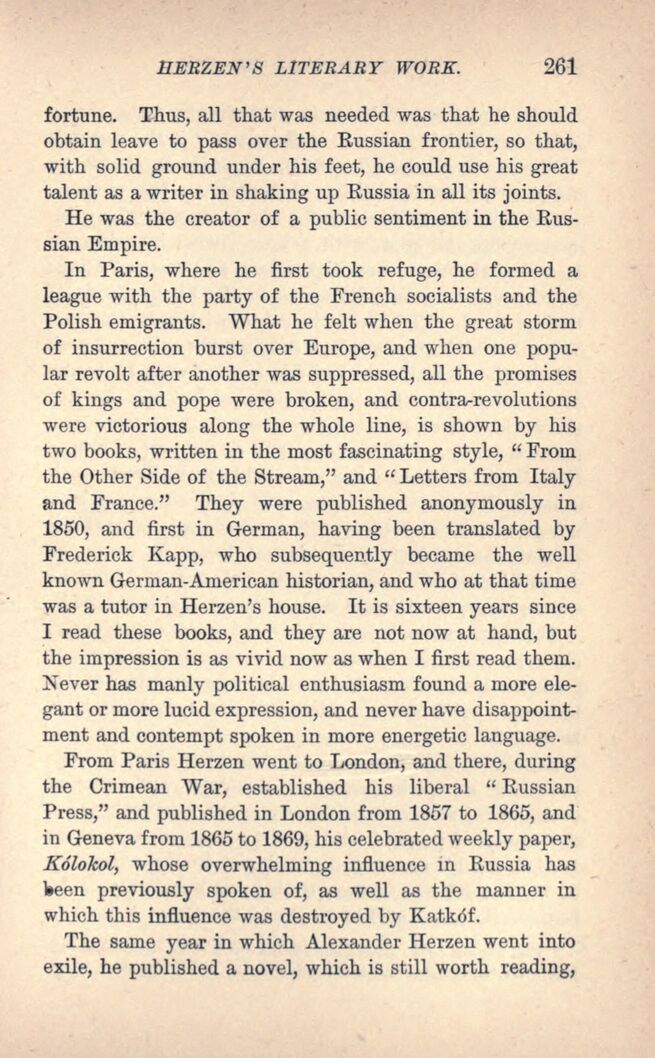
Full resolution (JPEG) - On this page / på denna sida - Impressions of Russian Literature - IV

<< prev. page << föreg. sida << >> nästa sida >> next page >>
Below is the raw OCR text
from the above scanned image.
Do you see an error? Proofread the page now!
Här nedan syns maskintolkade texten från faksimilbilden ovan.
Ser du något fel? Korrekturläs sidan nu!
This page has been proofread at least once.
(diff)
(history)
Denna sida har korrekturlästs minst en gång.
(skillnad)
(historik)
fortune. Thus, all that was needed was that he should
obtain leave to pass over the Russian frontier, so that,
with solid ground under his feet, he could use his great
talent as a writer in shaking up Russia in all its joints.
He was the creator of a public sentiment in the
Russian Empire.
In Paris, where he first took refuge, he formed a
league with the party of the French socialists and the
Polish emigrants. What he felt when the great storm
of insurrection burst over Europe, and when one
popular revolt after another was suppressed, all the promises
of kings and pope were broken, and contra-revolutions
were victorious along the whole line, is shown by his
two books, written in the most fascinating style, “From
the Other Side of the Stream,” and “Letters from Italy
and France.” They were published anonymously in
1850, and first in German, having been translated by
Frederick Kapp, who subsequently became the well
known German-American historian, and who at that time
was a tutor in Herzen’s house. It is sixteen years since
I read these books, and they are not now at hand, but
the impression is as vivid now as when I first read them.
Never has manly political enthusiasm found a more
elegant or more lucid expression, and never have
disappointment and contempt spoken in more energetic language.
From Paris Herzen went to London, and there, during
the Crimean War, established his liberal “Russian
Press,” and published in London from 1857 to 1865, and
in Geneva from 1865 to 1869, his celebrated weekly paper,
Kólokol, whose overwhelming influence in Russia has
been previously spoken of, as well as the manner in
which this influence was destroyed by Katkóf.
The same year in which Alexander Herzen went into
exile, he published a novel, which is still worth reading,
<< prev. page << föreg. sida << >> nästa sida >> next page >>